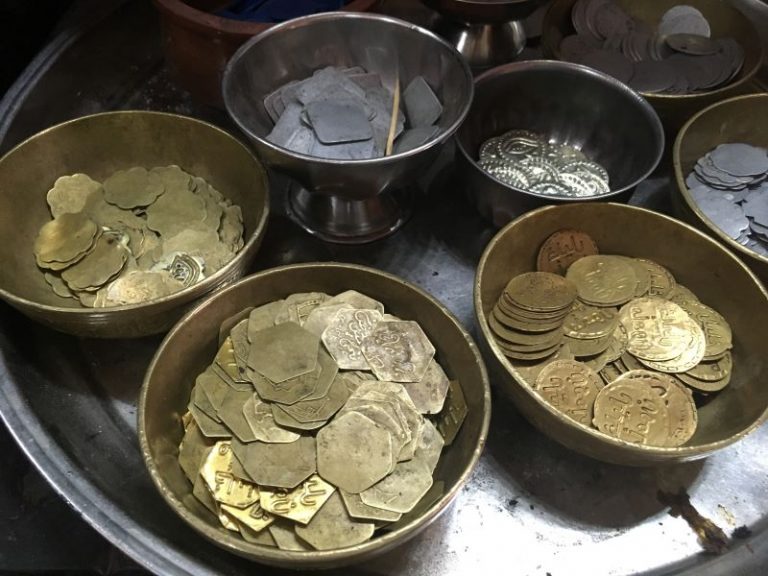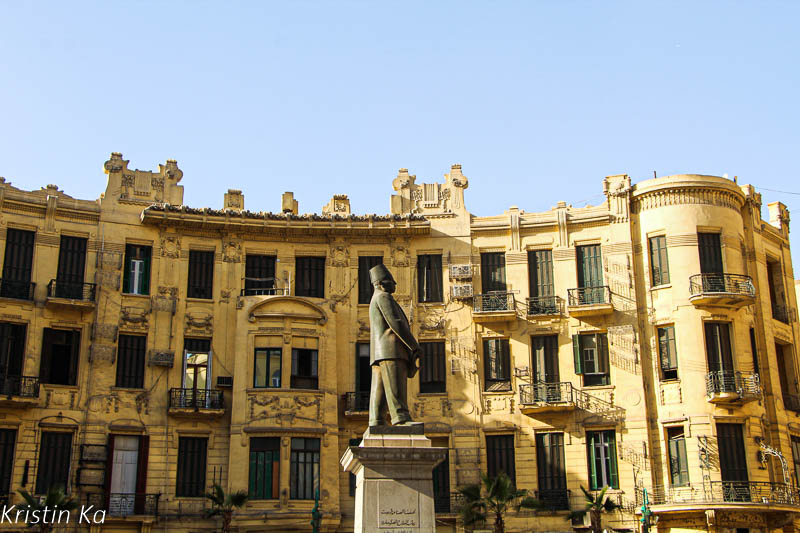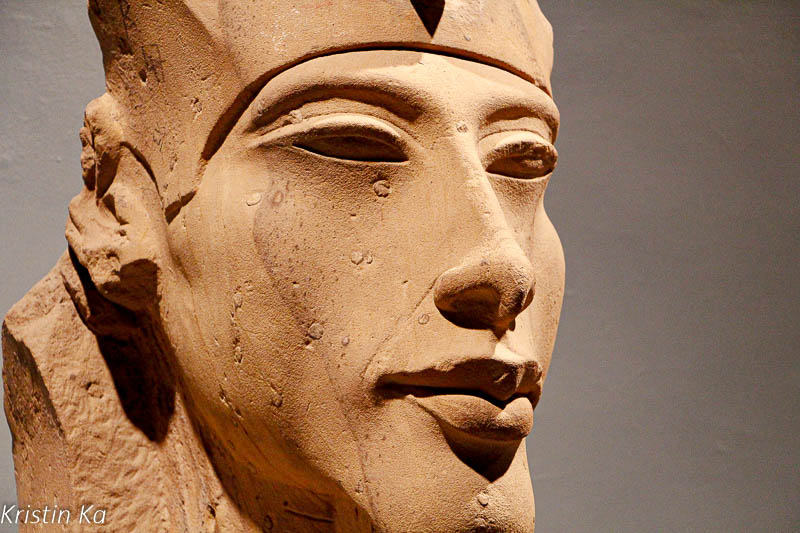Most visitors pass through Cairo in a gale. This is a great injustice because this city is really exciting, authentic and full of history
It’s always the same route: tourists arrive at the airport, visit the pyramids, the Egyptian museum, the souk of Al-Khalili and they’re already on their way back to Luxor. So why doesn’t anyone take the time to discover Cairo?
The plausible answers are diverse and for the most part true. But it is not a reason not to be a little stubborn, because beyond all that one reproaches it, the magnificent capital of Egypt is worth all the attention.
But what do they reproach you O beautiful Cairo?
First of all Cairo is considered as one of the most polluted cities there is. It is true, the city is dominated by an opaque cloud that drowns the pyramids in the mist. This fog is clearly visible as soon as you get a little higher.
It is also said that the city centre of Cairo is unattractive. This is not true of course, but it is deafening. The traffic is crazy, anarchic and the horn sings continuously. Traffic jams are inextricable at the end of the afternoon and suffocate the city in exhaust fumes. The constant flow of cars makes pedestrian exploration really tiring.
The pavements are sometimes non-existent and very congested, not only by the Egyptians who hurry there, but also by the vendors who place their wares on the ground or the beggars who sleep there.
Cairo has many faces. The beauty of this city is to be found in the heart of the old town
The buildings, new or old, are grey, brown, taupe, all but white, light or coloured. Egypt is a desert country, 95% of its territory is made of sand or pebbles. Cairo is therefore subject to dust-laden winds and sometimes even sandstorms. The city is gigantic, sprawling. Gigantic suburbs are being built on all sides.
Cairo has two faces: that of the Nile and its luxury hotels and the lower city. It is of course the popular side that is the most interesting, but many visitors are afraid to venture there. The fault lies with the news, which paints an unflattering picture of crime and ends up with a touch of terrorist attack. This is not true, Cairo is not a dangerous city.
Cairo is hell, there’s nothing you can do about it: not even true!
The only complicated thing here is to know what name to give to the second largest city in Africa. Al-Qāhira, El-Qāhéra or Masr (which means Egypt in Arabic)? Let’s give it the most beautiful name, Al-Qāhira, which means The Victorious One.
Cairo is an exciting city. It exudes a crazy energy. 22 million inhabitants, that’s a lot of people, and the city is huge. The Egyptians get up and go to bed late. Nothing or almost nothing is open before 10am but when evening falls, the city is teeming with life. The terraces are full, the ice cream vendors are in a rush and the pavements are full.
In the lower town, from Talaat Harb to Emad el-Deen, cinemas are crowded together. Seeing an Egyptian film (East Bollywood) in a tiny theatre is a great cultural immersion.
Visiting the Egyptian museum is good. But the mosques, and there are many of them, are well worth the effort of wearing a gown and scarf during the visit because they are beautiful and mainly located in the down town, so visitors has the opportunity to discover the local egyptian life.
Cairo reserves surprises every time you look outside: the architecture is wildly rich
Most of the buildings in Cairo were built in the 19th and 20th centuries. Along the main arteries are Haussmannian, neo-Renaissance, neo-Classical, neo-Arabic and even Art Nouveau buildings. And this is just a quick inventory of these centuries. Islamic, Mamluk, Arab or simply modern architecture is jostling for attention. It is a continuous discovery, the hidden alleyways, the 1950’s signs in French, the interiors of the buildings, the lifts and the balconies make the walk different every time.
And the people of Cairo, the inhabitant of Cairo, how do they welcome foreigners?
Overwhelmingly, the people of Cairo are extremely kind and helpful. It is impossible not to mention them: they are very smiling and surprisingly cheerful. They really take care of their visitors. They will usually scramble to find a translator, they will accompany you in the metro, in the microbuses and it is not uncommon to be offered tea on the terrace.
The neighbourhoods and alleys around the main roads are popular and the walker is more likely to make good encounters there than bad ones. The inhabitants don’t often see strangers; they will be happy to welcome them. From streets to avenues, from squares to souks, the foreigner is always greeted with a welcome and smiles.
The shy or fierce traveller will have to make up his mind. Cairo’s people are curious like weasels and will invite themselves to conversation, to exchange and will take things in hand without needing to be asked anything.
If you want a bit of calm, just say the, shoukran (no, thank you) with a smile.
Egyptians in Cairo don’t like their tourists to be bothered and they abhor seeing them worried or threatened
In case of a ruckus (it often happens here, men have a strong verb), it is regular to see the people in the street, the waiter or the salesman standing in front of the foreigner to protect him just in case. Don’t panic, it very rarely happens that the argument turns into a fight.
In Cairo, Egyptian food is eaten first and foremost
And the experience of egyptian cuisine is as gustatory as it is human. In the boui-boutiques, in general everything is good and affordable. Of course, you will have to make do with the local style: no white tablecloths or porcelain plates. The tables are cleaned very lightly, so if the traveller is fussy, it is advisable to always carry his wipes with you. Once the order has been placed, the table will be covered with bowls and bowls. Here everything is eaten at the same time and often with the fingers. The welcome is friendly and you find yourself surrounded by smiles and a good appetite! joyful.
The owners are generally very honoured to have a foreigner in their restaurant, especially if it is a typical Egyptian gargote. The visitor will be warmly welcomed and everyone will make sure that everything goes well.
The service can sometimes seem a bit cavalier, but in Egypt the customs and habits are different. When the meal is over, you don’t stay at the table, you leave. So don’t be offended if the waiter is too eager to pay for the meal or if he urges you to order something else.
Egyptian style service: how it works
In Cairo, it is important to understand how the service in the restaurant or bar works. Otherwise, the traveller may not enjoy his meal or his beer!
First of all, the waiter is paid for the service. This means that the more drinks or food he serves, the more he will be paid. This is done by means of tokens that look like coins. The waiter credits his account with one token for each drink or dish served. At the end of the day, the boss adds up the total and pays the waiter.
Chances are that he does not appreciate the customer who stays at the table “à la française”. As soon as he sees the beer almost finished, he will keep asking if you want another one.It is not uncommon for him to ask you outright to leave your place for the other customers so that the service can run smoothly.Finally, the waiter may seem rude, which is often the case, but if he is too cool, he could lose his place!

Cairo is a really endearing city. Here, the traveller’s steps don’t tread the ground of any capital city. Here he is in Egypt. The incredible personality of the gigantic city makes it like no other. Yes, it is undoubtedly all that it is reproached for, but what it gives in return is worth a thousand times more.
Discover the world, travel!
Egypt is the depositary of an extraordinary cultural heritage. Few countries can compete with these treasures. Don’t settle for the legendary pyramids of Giza, Egypt, culture is lurking everywhere!

